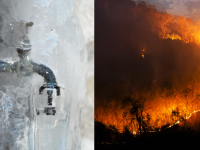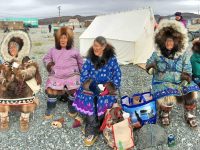Science: Is science global or local ?

Science. Geneva, March 4 2014. Albert Einstein studied and then taught at the Zurich Polytechnics : ever since, and indeed even since before, Switzerland is seen as a science hub… with some rivalry between the French and German part of the country. But this article focuses on the issue of country borders in science, which is now at the centre of Euro-Swiss « war ». For both sides, though, it may be time to address some taboos on the « knowledge society ».
Physics is not quite passé : Geneva is most proud of her « Cern »… but more sexy these days are « life sciences ». Although Serono – « the largest biotech company in the world » – is gone, the campus stays, and will soon host the big lab on brain research: the joint Euro-Swiss financing was secured – at least for three years – before this country voted « wrong » on February 9th. Since then, the European Union made her best to « retaliate » and bar cooperation on Erasmus (student exchanges) and Horizon 2020 (research). Is science losing its global profile? Quarter of a millenium ago, when France and England were warring, scientist from both sides would still meet to discuss the value of the Metric System. Modern science has turned much more parochial.
How to read between the lines of light
Deciphering the genes – in particular, describing the molecular structure of „deoxyribonucleic acid“ – was the great science saga of the second half of the 20th century. It happens that this substance was discovered (if not analysed) by a Swiss scientist one and half a century ago. After WWII, some great chemists tried to unlock the atomic riddle of DNA, and two biologists eventually solved it: DNA is a twin inverted helix of proteins. A third researcher -a lady – could not share the Nobel Award with them, as she died too soon. She had been their guide in the quest through darkness, as she could „read“ a lot in the lines… not of the hand, but of light spectra. To research still better, she was getting ready to switch to another college, but tried to keep ties with her former lab for data. „Science is not an airy spirit. It is a territorial body“, answered her former Dean. Still, academia give a lot of lip service to open science, and scientists can keep aware of frontier research at congresses, in journals, or through the web. In this realm, the Swiss-European war is thence „beside the point“, as a British expert in science policy put it. Moreover…
Was Goliath a good scientist ?
Two opposed views exist today on science policy: the view of Goliath, and the one of David. The Goliaths are the Ministries, Academia, Institutions… who plan, write and play « the knowledge society », with Europe as the temple. They are all very proud of their prestige, which they equal with quality, and which they want now to extend worldwide through their „Moocs“ (distance teaching). But these courses online will meet thousands of rivals : « the key is branding », says the boss of the famed « Ecole polytechnique fédérale de Lausanne ». The Davids are few, but not quite silenced : One of them is a retired professor at the same Polytechnics : he says that most science journals are bluff, and that academia produce ever more mediocre science. Another scientist wrote a book of the same vein, and was driven so mad by the Goliath that he wanted to swap his academic career for the bookshop of his father. Now, he is charged with killing his mother-in-law, but the judge didn’t see the link between both issues. Non state colleges may be a bit more open to Davids‘ point of view, though they are not many and bit greedy. But officialdom will not give in: lately, at a show of rising stars at university of Geneva, a young lady came to cheer up a friend of hers. „Why don’t you stay for the other speakers? “ ; « I think it’s not well perceived » she replied ; then « Why do you want to be well perceived » was the next question ; « Oh ! This is the key question of academic life“, was her final reply. Well… it may be that Europe and Switzerland are at war for a silly ghost… or a flat tire.
Stale bread cake
But let’s end on a positive note. Geneva has a bunch of unique assets : Cern, of course, although it is a Goliath. That « European lab for physics research » is the leading physics centre in the world, open to scientists from the five continents. Currently, it is pushing in two directions, which two significant symposia recently mirrored, under the motto “physics is beautiful and useful”. One is the planning of a still larger particle accelerator 100 kilometers long, i. e. larger than the whole Geneva County. Another is diversification and technology transfer, namely in medical technology. The current director of Cern may well have one half of his brain for David. Another strength of firms here, in respect to world business, is their long proven ability to root in diverse countries. Nestlé is often hailed as the world company par excellence; at the other end of the country, Ems Chemie – the very firm of « racist » Blocher – was a pioneer in Asian markets; and even start-ups, in Geneva, have a foot on the French side of the border. But the still most untapped scientific asset of Geneva and the Lake region is the calendar of meetings and shows, where state-of-the-art specialists come in mass: the recent Geo forum (on earth observation) was a pearl of transdisciplinary excellence; and Lift is a fabulous success of young people for new media, to name just two. Sure, many cities do the same, but in regard for her size, Geneva is a world champion. Another near untapped resource is the network of international agencies, each being the Mecca in its domain: World Health Organisation, International Telecommunication Union, World Intellectual Property Organization (frantic these days with „creativity“ programmes)… a dozen in all, plus hundreds or thousands of non-governmental organizations. But are they ready to drop their power game for the spirit of science?
Dust can prove yeast
In the background of such a stalemate, we need Peter Pans : Citizen science is surging… sometimes funnelled by academias… sometimes challenging them. One is « Bar des Sciences » (see www.bancspublics.ch) ; but we also went to a recent workshop (www.objectif-sciences-international.org), of which you can hear the leader if you click on this page.
Le boson et le chapeau mexicain, de Gilles Cohen-Tannoudji et Michel Spiro (Gallimard, 2013)
http://www.snf.ch/fr/pointrecherche/magazine-de-recherche-horizons/Pages/default.aspx (voir, entre autres, le n° 100)
La bulle universitaire, de Libero Zuppiroli (Editions d’En Bas)
La science à bout de souffle, de Laurent Ségalat (Seuil, 2009)
www.liftconference.com










